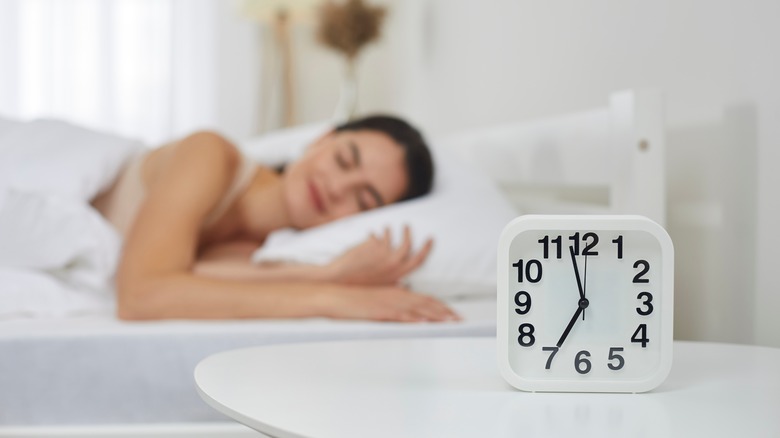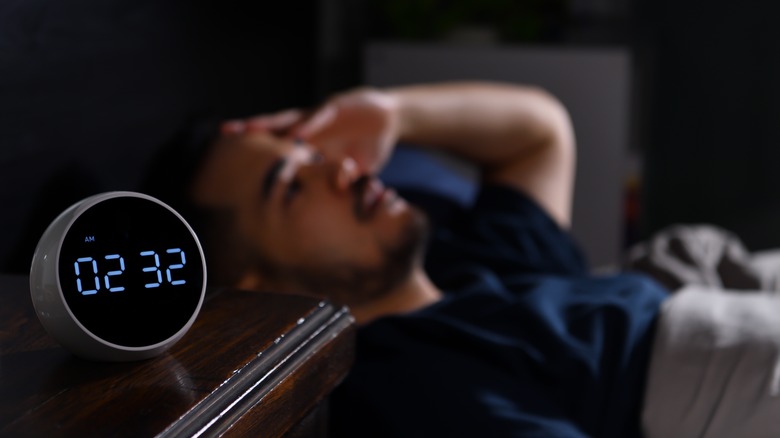Health Digest Survey: What Time Do People Typically Go To Bed Every Day?
Between daily responsibilities and activities, the times adults go to bed vary. While children usually have bedtimes they must follow, adults tend to crawl into bed at a wider range of hours. For young children and adolescents, the hours spent sleeping contribute to healthy maturing of the body and brain, per National Heart, Lung, and Blood Institute.
Even though adults are fully grown, the purpose sleep plays is very similar when it comes to brain function and physical restoration. Getting sufficient sleep can lead to positive outcomes for energy levels, cognitive clarity, work performance, and emotional regulation, while not getting enough sleep can have adverse effects on daily functioning. An exclusive survey conducted by Health Digest has determined the times people typically go to bed each day, and the results may be surprising.
Having a set bedtime and sticking to the same sleep schedule each night is an effective way to practice healthy sleep hygiene, the concept of implementing habits that contribute to getting the best possible sleep quality. According to Mayo Clinic, having a consistent bedtime can support the sleep-wake cycle of the body and brain. Restricting daytime naps can help reinforce a consistent nighttime sleep schedule. However, you don't have to wait until a late hour to tuck under the covers. The Health Digest survey found that 7.03% of people go to bed at 8 p.m. or earlier. No matter when you go to sleep, getting eight hours of rest is recommended for optimal rest.
Later hours are preferred
Following those who turn in at 8 p.m. or earlier, 14.05% of people surveyed reported going to bed at 9 p.m. The single digit evening hours are the least preferable bedtimes, per the exclusive Health Digest survey. The most common times to go to bed are after 9 p.m, with just under a quarter of people surveyed reporting going to bed at 11 p.m., thus accounting for 22.71% of responses. Going to bed at midnight or even later made up for 26.31% of survey findings. Even though there is popularity for later bedtimes, including going to sleep in the early morning hours, there are potential risks that come with going to bed after 11 p.m.
A 2021 study published in European Heart Journal tracked adult participants for six years and found that the prevalence of developing heart disease increases in accordance with the time a person goes to bed. The study correlated going to bed at 11 p.m. with a 12% increased risk of heart disease, and a nearly 25% greater risk of heart disease for people who go to bed after midnight. Researchers determined the best bedtime for protecting heart health is 10 p.m. The Health Digest survey found that the most popular time for cozying up under the sheets and going to bed is 10 p.m., with 29.90% of responses supporting what is believed to be the healthiest bedtime hour.


